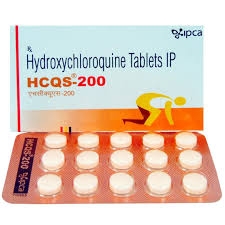Who Should Avoid Taking HCQS 200?

Hydroxychloroquine (HCQS 200) is a widely used medication for treating malaria, rheumatoid arthritis, lupus, and other autoimmune conditions. However, despite its effectiveness, not everyone should take HCQS 200. Certain individuals may face increased risks due to pre-existing health conditions or potential drug interactions. This article outlines who should avoid taking HCQS 200 and why.
1. Individuals with Retinal or Vision Problems
buy hydroxychloroquine online has been linked to retinal toxicity, which can lead to irreversible vision damage or even blindness. People with existing retinal disorders, such as macular degeneration, should avoid HCQS 200 as it can worsen their condition. Regular eye exams are necessary for those who are prescribed this medication for long-term use.
2. Patients with Heart Conditions
HCQS 200 has been associated with heart rhythm disturbances, particularly in people with pre-existing heart conditions such as arrhythmias or cardiomyopathy. It can cause a prolonged QT interval, increasing the risk of life-threatening heart arrhythmias. Patients with a history of heart disease should consult their doctor before considering this medication.
3. People with Liver or Kidney Disease
Since HCQS 200 is processed in the liver and excreted through the kidneys, individuals with impaired liver or kidney function may experience severe side effects. These organs may not be able to metabolize and eliminate the drug efficiently, leading to toxicity. Regular monitoring of liver and kidney function is advised for those taking this medication.
4. Pregnant and Breastfeeding Women
HCQS 200 can cross the placenta and may affect fetal development. Studies suggest that high doses of hydroxychloroquine may lead to congenital disabilities or developmental issues in unborn babies. Additionally, the drug can pass into breast milk, posing potential risks to nursing infants. Pregnant and breastfeeding women should use HCQS 200 only if deemed absolutely necessary by a doctor.
5. Individuals with Psoriasis or Porphyria
People suffering from psoriasis or porphyria should avoid HCQS 200, as it can trigger severe flare-ups of their condition. Hydroxychloroquine has been known to exacerbate skin lesions and symptoms in patients with psoriasis, making the disease harder to manage.
6. Those with a History of Severe Allergic Reactions
Individuals who have previously experienced allergic reactions to hydroxychloroquine or related drugs should not take HCQS 200. Symptoms of an allergic reaction include rash, difficulty breathing, swelling of the face or throat, and severe dizziness. If any of these symptoms occur, immediate medical attention is required.
7. Diabetic Patients
HCQS 200 may affect blood sugar levels, causing hypoglycemia (low blood sugar). Diabetic patients on insulin or oral anti-diabetic medications should use caution and monitor their blood sugar levels regularly. Adjustments to diabetes medication dosages may be necessary.
8. People Taking Certain Medications
HCQS 200 can interact with various medications, leading to severe side effects or reduced effectiveness. Some common drug interactions include:
-
Antibiotics like Azithromycin – Increases the risk of heart rhythm issues.
-
Blood thinners like Warfarin – May increase the risk of bleeding.
-
Anti-seizure medications – May reduce their effectiveness.
-
Certain antidepressants – May worsen QT prolongation effects. Anyone taking these or other medications should consult their doctor before using HCQS 200.
Conclusion
While HCQS 200 is a useful medication for many conditions, it is not suitable for everyone. Individuals with pre-existing health conditions, pregnant or breastfeeding women, and those taking certain medications should consult their healthcare provider before using HCQS 200. If you fall into any of these categories, discuss alternative treatments with your doctor to ensure safe and effective care.
Always follow medical advice and avoid self-medicating to prevent serious health complications. If you experience any unusual symptoms while taking HCQS 200, seek medical attention immediately.
- Questions and Answers
- Opinion
- Motivational and Inspiring Story
- Technology
- Live and Let live
- Focus
- Geopolitics
- Military-Arms/Equipment
- Security
- Economy
- Beasts of Nations
- Machine Tools-The “Mother Industry”
- Art
- Causes
- Crafts
- Dance
- Drinks
- Film/Movie
- Fitness
- Food
- Games
- Gardening
- Health
- Home
- Literature
- Music
- Networking
- Other
- Party
- Religion
- Shopping
- Sports
- Theater
- Health and Wellness
- News
- Culture

